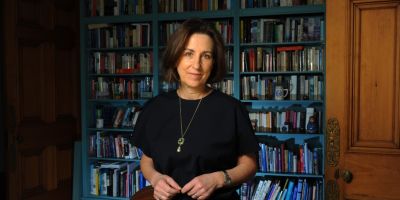The University of Leeds has signed a Cooperating Partnership agreement with the Digital Research Infrastructure for the Arts and Humanities (DARIAH-EU)

The University of Leeds has signed a Cooperating Partnership agreement with the Digital Research Infrastructure for the Arts and Humanities (DARIAH-EU)
DARIAH is a European Research Infrastructure Consortium (ERIC) whose mission is to empower research communities with digital methods to create, connect and share knowledge about culture and society. In addition to having 22 Member states, DARIAH has also established a network of cooperating partners in non-member countries.
I am delighted that Leeds is joining DARIAH as a cooperating partner. This marks a significant development in our institutional support for digital creativity, digital humanities, and cultural partnerships. Being part of this European infrastructure is an exciting step that will help strengthen collaboration and build new opportunities for staff and students. We see DARIAH as an important focus for our work and look forward to connecting with all partners across the cooperating area.
Knowledge for All: Digital Developments at the University of Leeds
The University of Leeds is one of the largest universities in the UK, with over 39000 students currently enrolled. It is part of the Russell Group of research-intensive universities and is in the top 100 QS World University rankings. Researchers at Leeds are involved in the design, development, and deployment of digital tools in research and practice. There is engagement and funded activity across the University in a range of areas including Corpus linguistics, Representation and Decolonisation in DH, Digital Curatorial Practices in Cultural Collections, Archival Data, and Digital Creativity. The University has a strong culture of research around digital equality and access, the active study of the changing landscape of digital media and social media, responsible and restorative AI, and generative practices. Researchers at Leeds make extensive use of digital means to engage audiences in research and effect societal change, including projects in the arts and humanities where engagement and co-production are central to the research processes resulting in digital outputs, including film, databases, and major web resources.
The University has made recent significant investments in digital research infrastructure and digital research ideation. The University’s Xr technologies centre, Helix, has just launched alongside a new digital and physical MakerSpace in the Edward Boyle Library. The University Libraries are currently investing in upgraded provision for digital preservation, management, and discovery pipelines to align with global standards of best-practices and FAIR principles as part of the Knowledge for All strategy.
A Hub for Digital Creativity and Culture
The Digital Creativity and Cultures Hub was established in 2023 as the home of digital research in Arts, Humanities and Cultures at the University of Leeds. Working across the institution, supported by the Leeds Arts and Humanities Research Institute and the University of Leeds Libraries, the Hub is the home of Leeds’s Digital Humanities Research Group, promotes digital humanities scholarship and cross-disciplinary collaboration, brings together academic faculty, library and professional support colleagues, and joins the digital dots across services and schools.
The DCCH leads on DH activity in the institution, supporting individual projects, running events and training, and providing advice and resources on DH methods. Hub staff have expertise in digital archives, digital translation, cultural heritage data, generative digital methods, text encoding and analysis, and modelling and transforming humanities data. The Hub is working closely with the N8 centre of excellence in Computationally Intensive Research on their Digital Humanities and Machine Learning themes, connecting DH research at Leeds with a wider regional community of research-intensive universities in the UK. The Hub has a particular remit to promote digital engagement with the University’s rich cultural collections and works closely with the Special Collections and Galleries team. As part of this, and their commitment to interdisciplinary working, the Hub runs an innovative undergraduate internship scheme that pairs students from Arts and STEM faculties on collaborative projects that engage digitally with cultural collections. The DCCH is the point of formal connection between the University and DARIAH-EU and will drive partnership activity.
Becoming a Cooperating Partner of DARIAH will allow the University of Leeds’s researcher and student community to benefit from the collaborative methodological and pedagogic resources of DARIAH-Campus, and to contribute to this via the DCCH. The University’s membership of DARIAH will enable colleagues at Leeds to pursue new collaborations to further develop their existing research strengths in cultural heritage data, corpus linguistics, geo spatial mapping, the ethics of AI and machine learning in the GLAM sector and contribute to the transnational Digital Humanities conversation.
Leeds and the DCCH bring an impressive array of digital skills to the DARIAH-EU family, and I look forward to seeing the ways we can benefit from their expertise. They should make an exemplary Cooperating Partner, and I hope, a key member of broader consortium across the UK.
For more information on the Cooperating Partners membership in DARIAH, their role, tasks and benefits, have a look at our detailed post here.




